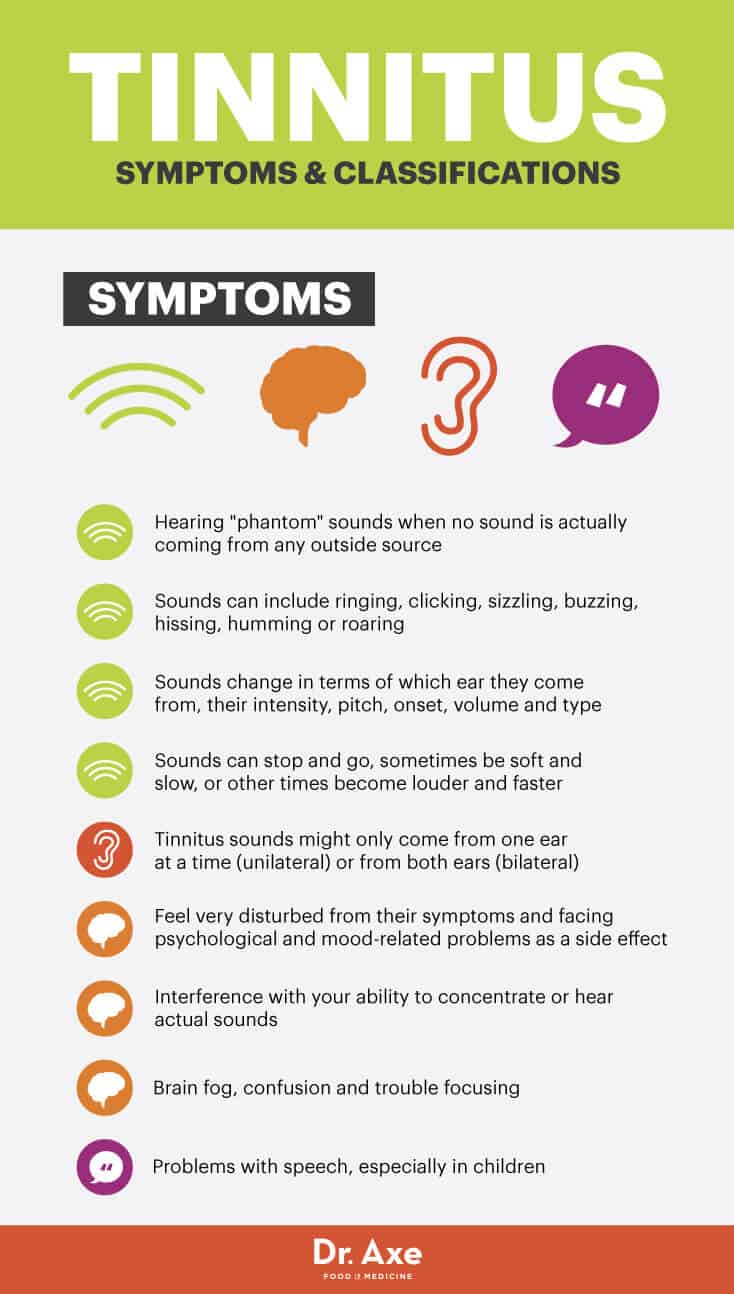Tinnitus- the Ringing in Your Ears
Tinnitus is a ringing in one’s ears when no external sound is present, experienced by everyone at some point in their lives. The word tinnitus itself means “to tinkle or to ring like a bell”. But when tinnitus is constant or happens, again and again, it can definitely have an effect on your ability to concentrate and fall asleep. I know, because I live with this condition. I developed permanent tinnitus a few years ago, when I had a severe bout with Meniere’s Disease, and have been living with the annoying, buzzing, ringing sound in my ears ever since.

The noise that comes about because of tinnitus can sound like humming, blowing, roaring, whistling, sizzling, ringing, or buzzing. The volume of the noise can go up and down; mine sounds like a low whistle, always there in my right ear. Tinnitus often sounds the same as when you put a seashell to your ear to “hear the ocean”. The exact cause of tinnitus is a medical mystery, but it is a symptom of many ear ailments, including excess ear wax, infections, foreign objects in the ear, and injuries that occur from loud noises. Some medications can cause tinnitus as a side effect, as can jaw misalignment and cardiovascular disease. Tinnitus is a sign, sometimes, of a serious affliction like a brain tumor or an aneurysm. I had to undergo an MRI to rule out these possibilities when I first experienced the tinnitus that went along with the dizzy spells caused by Meniere’s.
Some degree of hearing loss that accompanies tinnitus is 90% of cases. Although you can develop tinnitus at any age, it is not common in children. It is imperative that you call your physician if you begin to experience tinnitus after you have suffered a head injury. If tinnitus occurs along with dizziness, nausea, or vomiting, see your doctor. You will be asked to describe the type of noise you are hearing, whether it is a throbbing or rhythmic sound, in both ears or just one, and if you are experiencing any other symptoms along with the unwanted noise. Audiology tests will be performed, and you will likely undergo a CT scan, head X-Rays, and an MRI like I had to.
There is no cure for tinnitus, but there are some steps such as including Sonus Complete that can be taken in many cases to clear up whatever is causing the condition. You can also click here to read [google_bot_show][/google_bot_show]Sonus complete reviews and see for yourself how effective this supplement is. If excess earwax is the culprit, your doctor will be able to safely remove it and put you on a schedule to make sure it does not build up to that point again. You could wear a tinnitus masker, a device much like a hearing aid only designed to produce a low-level sound into the affected ear to lessen or mask the tinnitus sounds. A normal hearing aid may amplify outside noises enough so that the tinnitus is lessened. Certain medications can treat the underlying cause of the ringing sound, drugs such as antihistamines, antidepressants, and anti-anxiety medications.
There is no drug that is used specifically to rid oneself of tinnitus. The condition disables some people so badly that they need to seek counseling to learn to live with it. Biofeedback training, a relaxation technique that teaches people to learn to control certain bodily functions in an effort to reduce their reaction to stress, is encouraged is some instances. Tinnitus is sometimes reduced by this lowering of one’s reaction to stress.

Tinnitus can be masked by other sounds, making it more bearable. Music, the ticking of a clock, a whirring fan, and so forth can help to camouflage the tinnitus sound. The ringing is more noticeable when it is time to go to sleep, as this is usually the quietest time of the day, with little outside noise to cover up the ringing. Any low-level noise can help, such as a fan, a humidifier, or a white noise machine. If you work in a noisy environment constantly, be sure to wear some sort of ear protection to avoid developing tinnitus. Have your blood pressure checked regularly as well since tinnitus has been connected to hypertension.
My tinnitus rises and falls in volume, with no discernable reason why. It affects only my right ear and was first noticed some years ago when I began to experience violent dizzy spells. I was eventually diagnosed as having a condition known as Meniere’s Disease, which is a combination of vertigo and tinnitus. The dizzy spells come and go, but the ringing in my ear is constant. I have learned to live with it to the point that I sometimes do not notice it at all, but when I think about it, it takes some time for me to be able to put it into the background once more. But I can sometimes see how tinnitus could begin to drive someone up a wall, and it is by no means a pleasant condition to have to live with.
